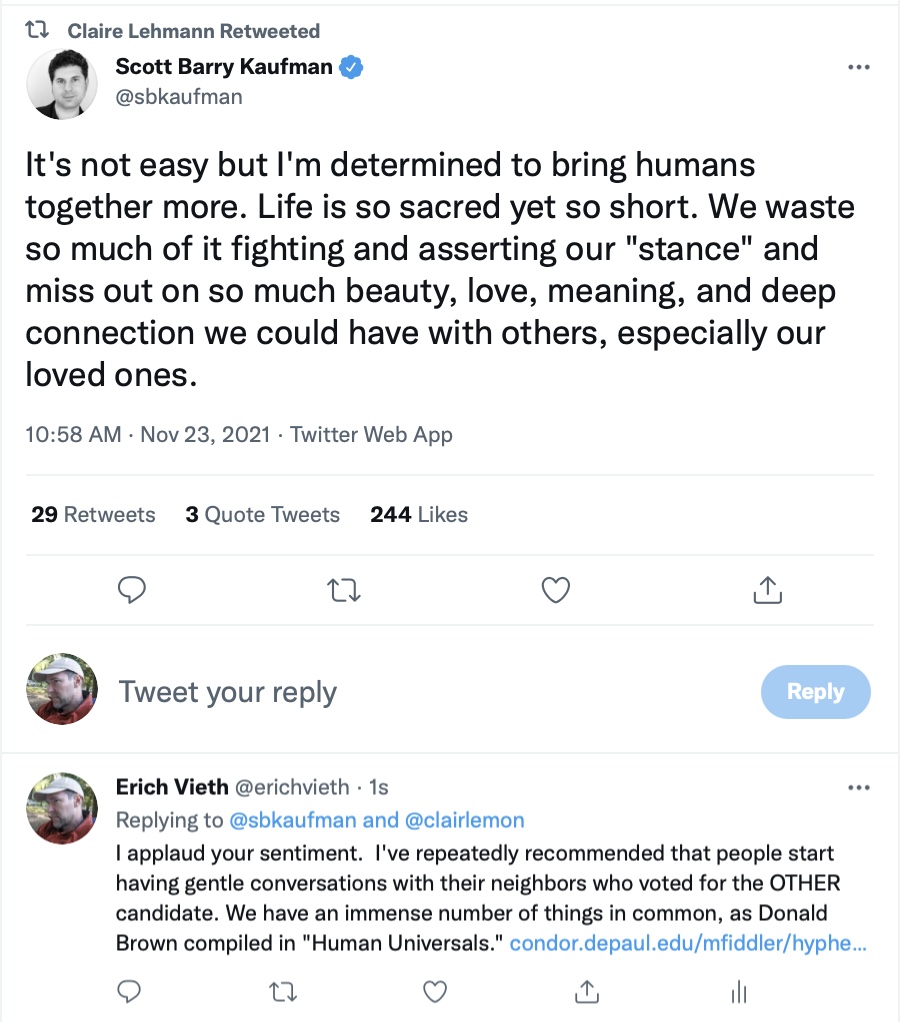Why and How to have Conversations With the People Who Disagree with Us
Here, Scott Barry Kaufman tells us why we need to have conversations with people who think differently than us:
Here is a long list of many of the things we have in common, a list compiled by Donald Brown in a book called Human Universals. I commented on this long list in a previous post.
And here is a good recipe for having those conversations, the HxA Way of Heterodox Academy.



